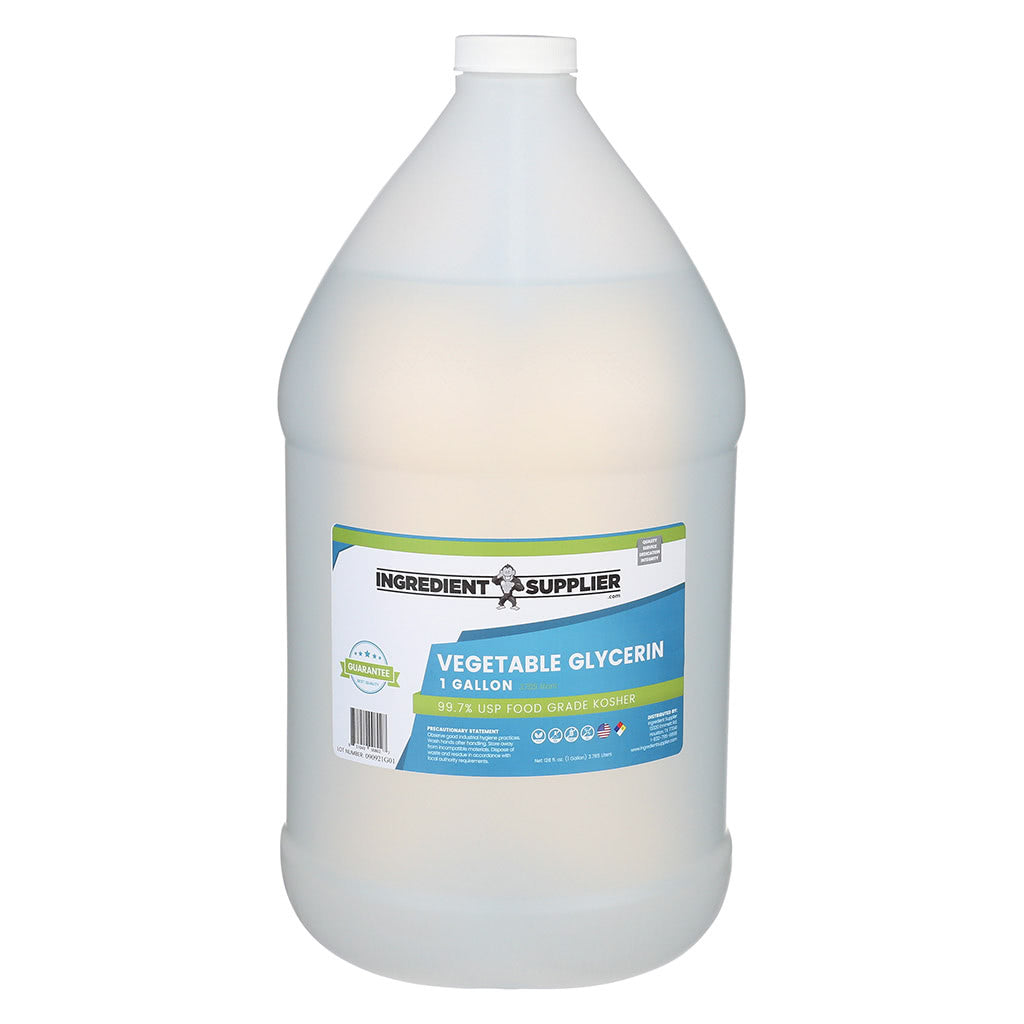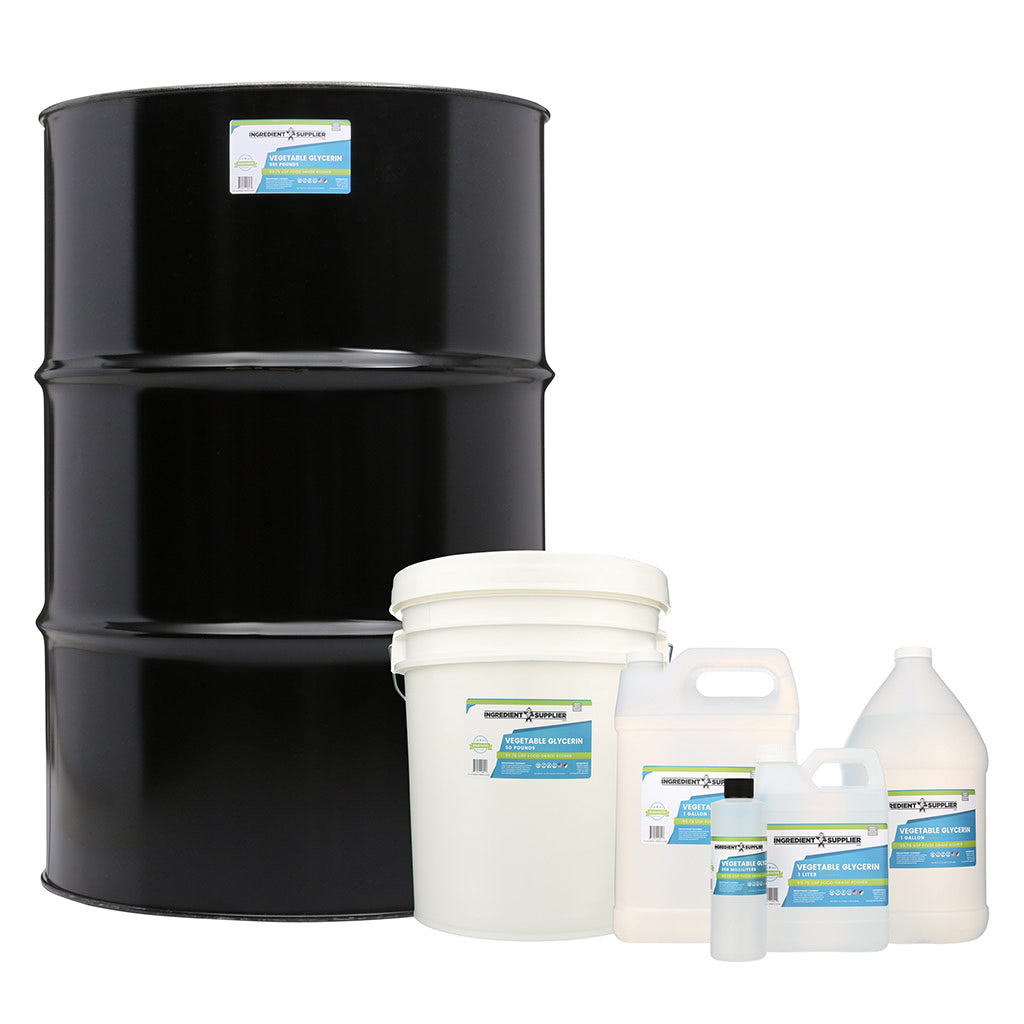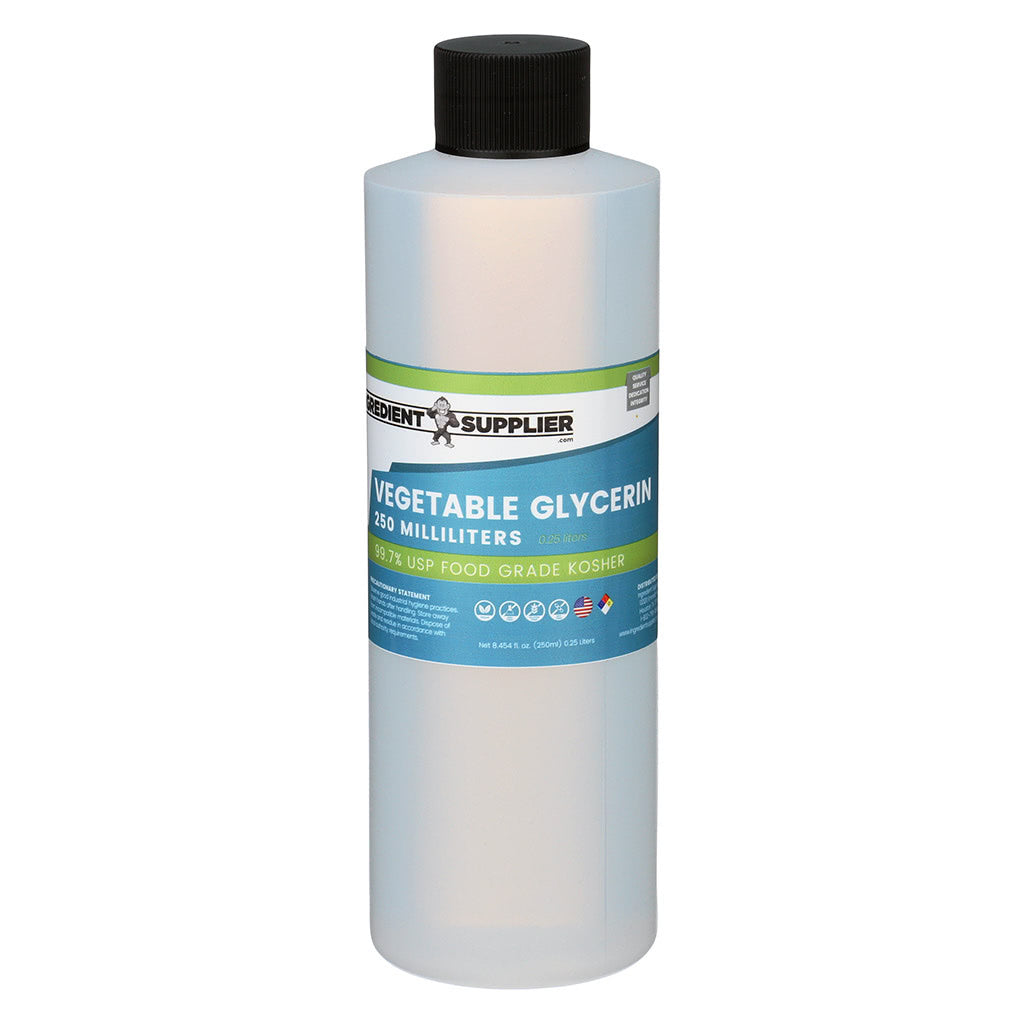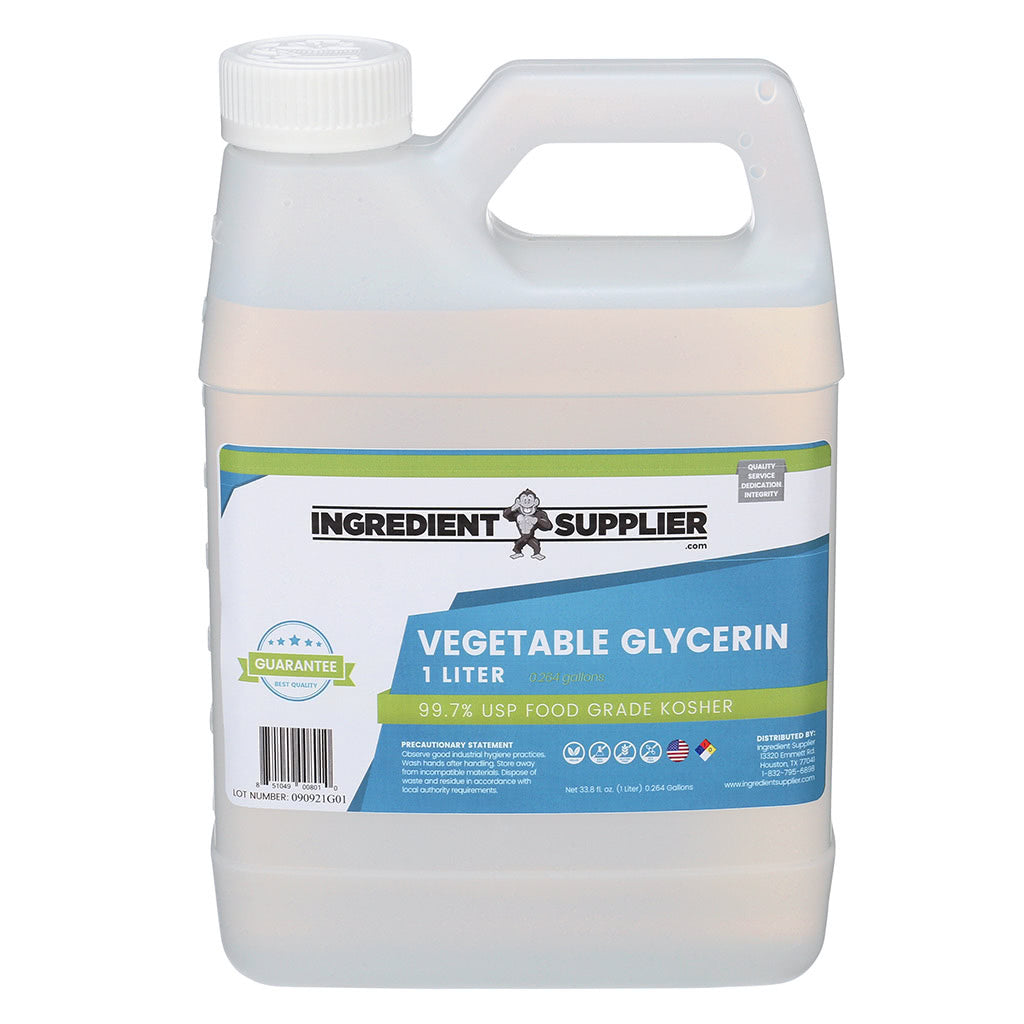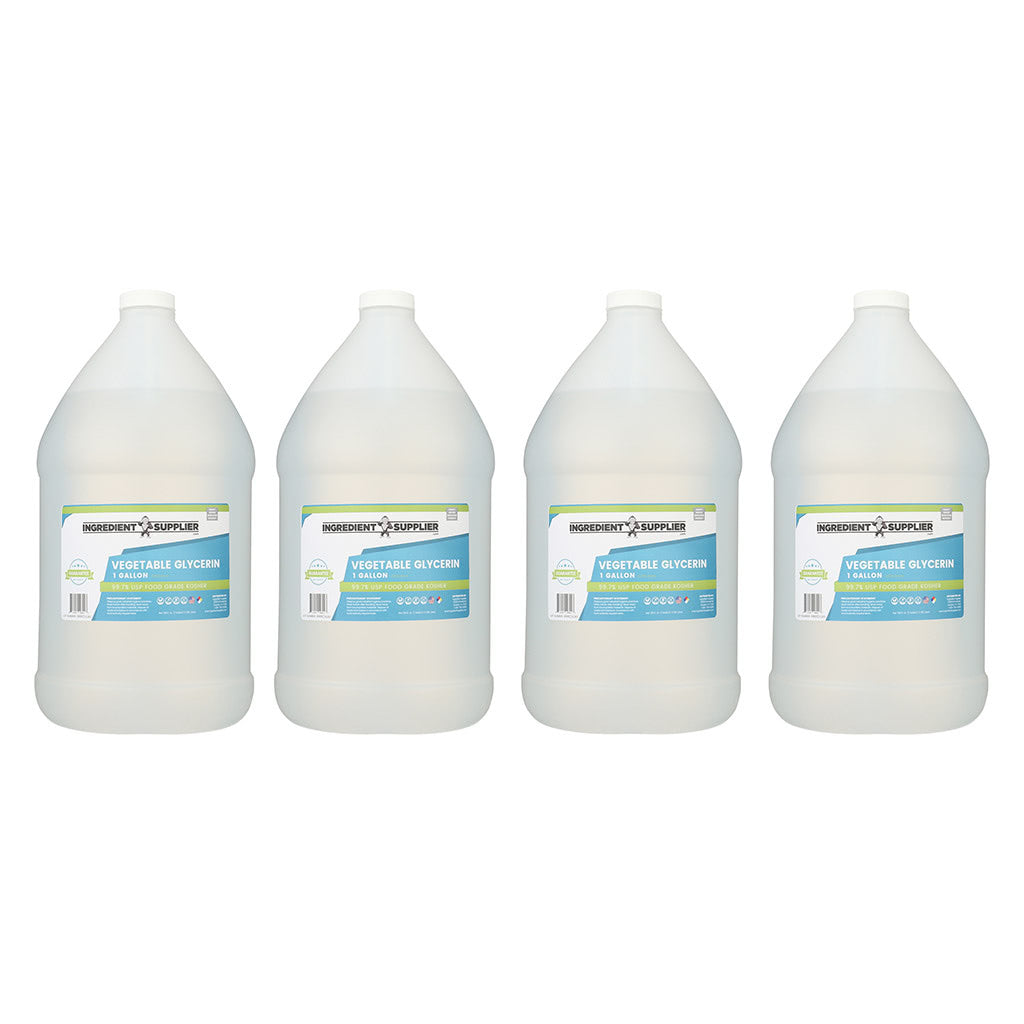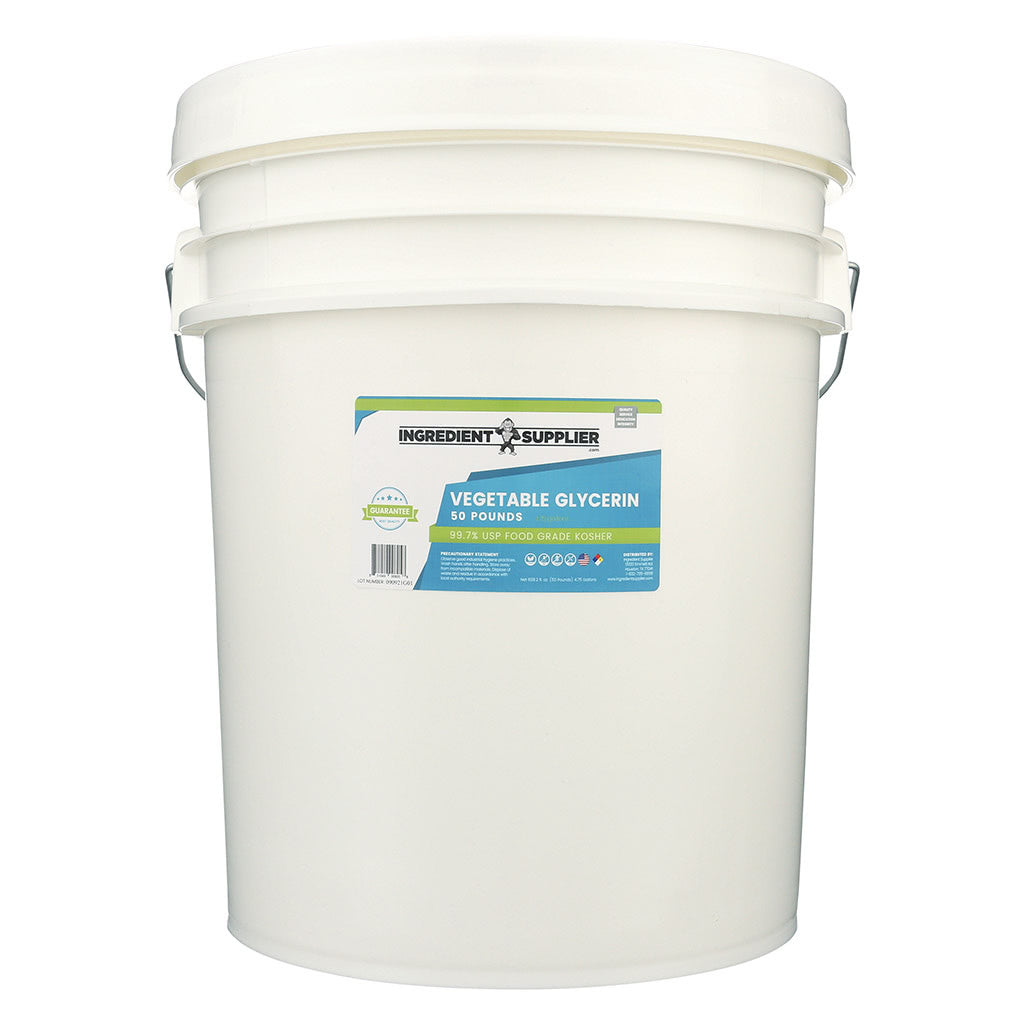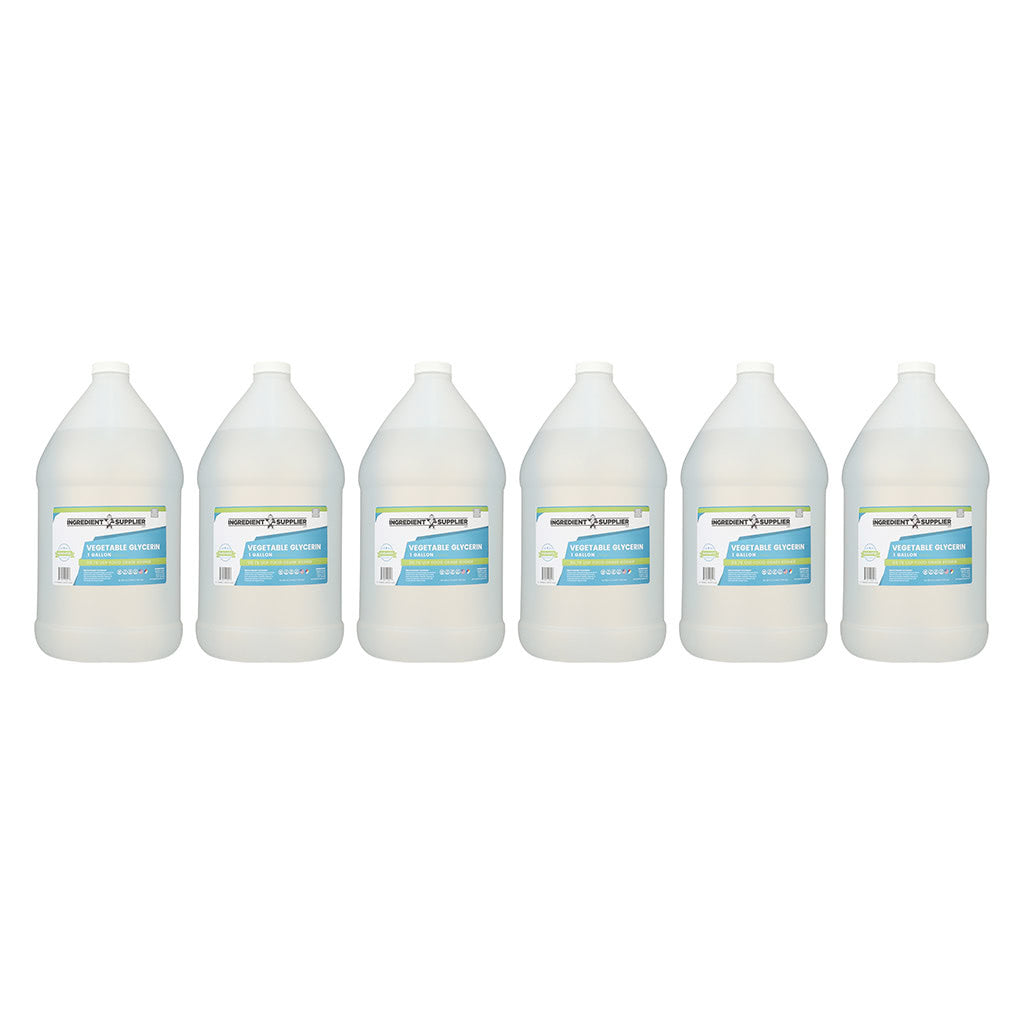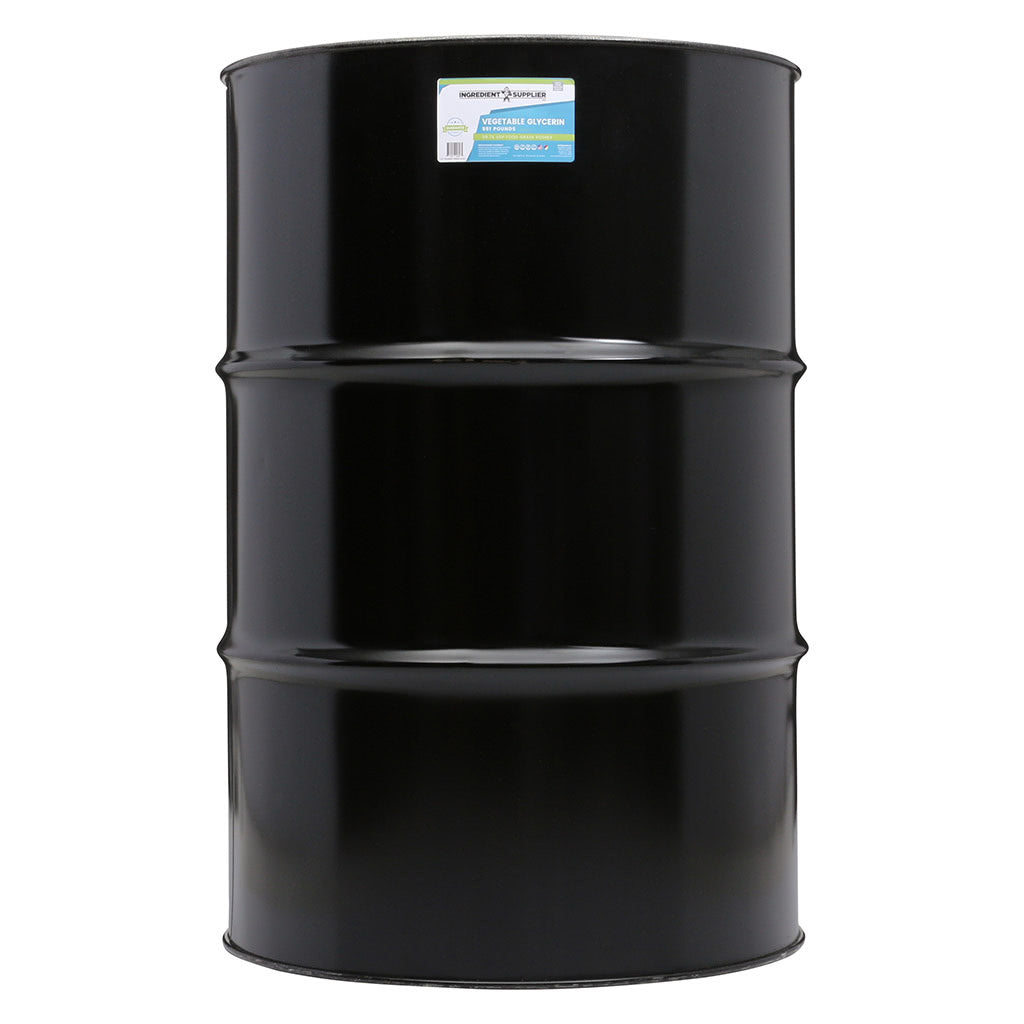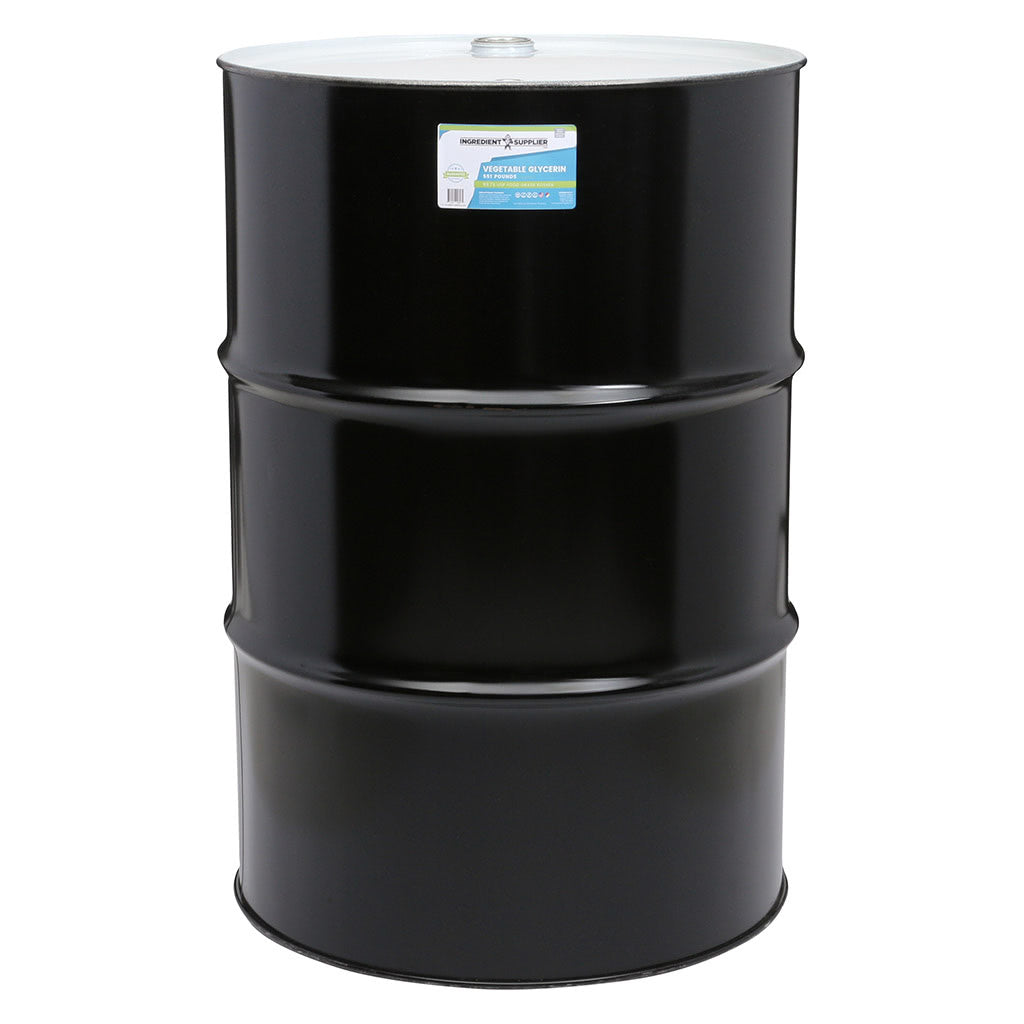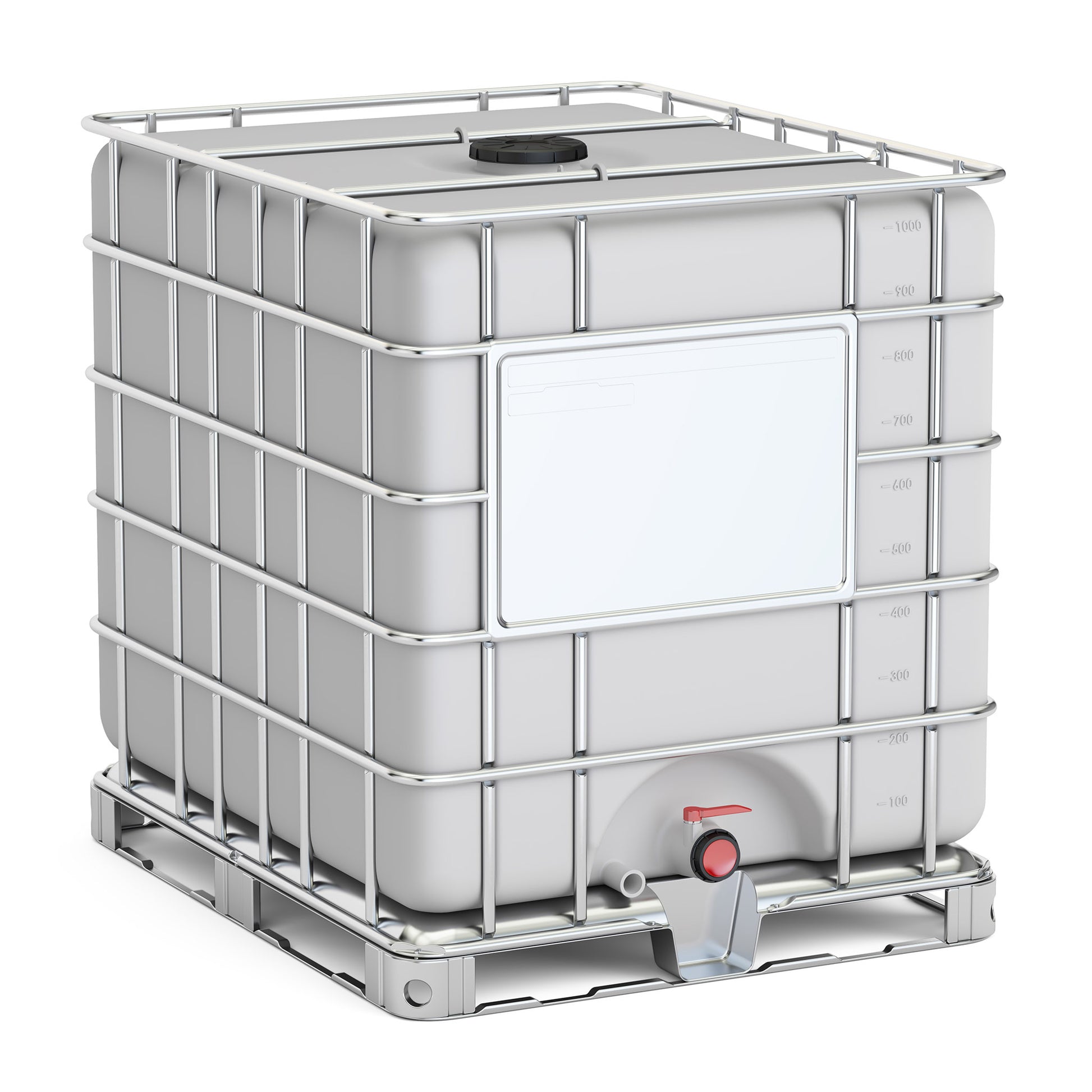Ingredient Supplier
Vegetable Glycerin USP Food Grade >99.7% Palm-Derived
Vegetable Glycerin USP Food Grade >99.7% Palm-Derived
Couldn't load pickup availability
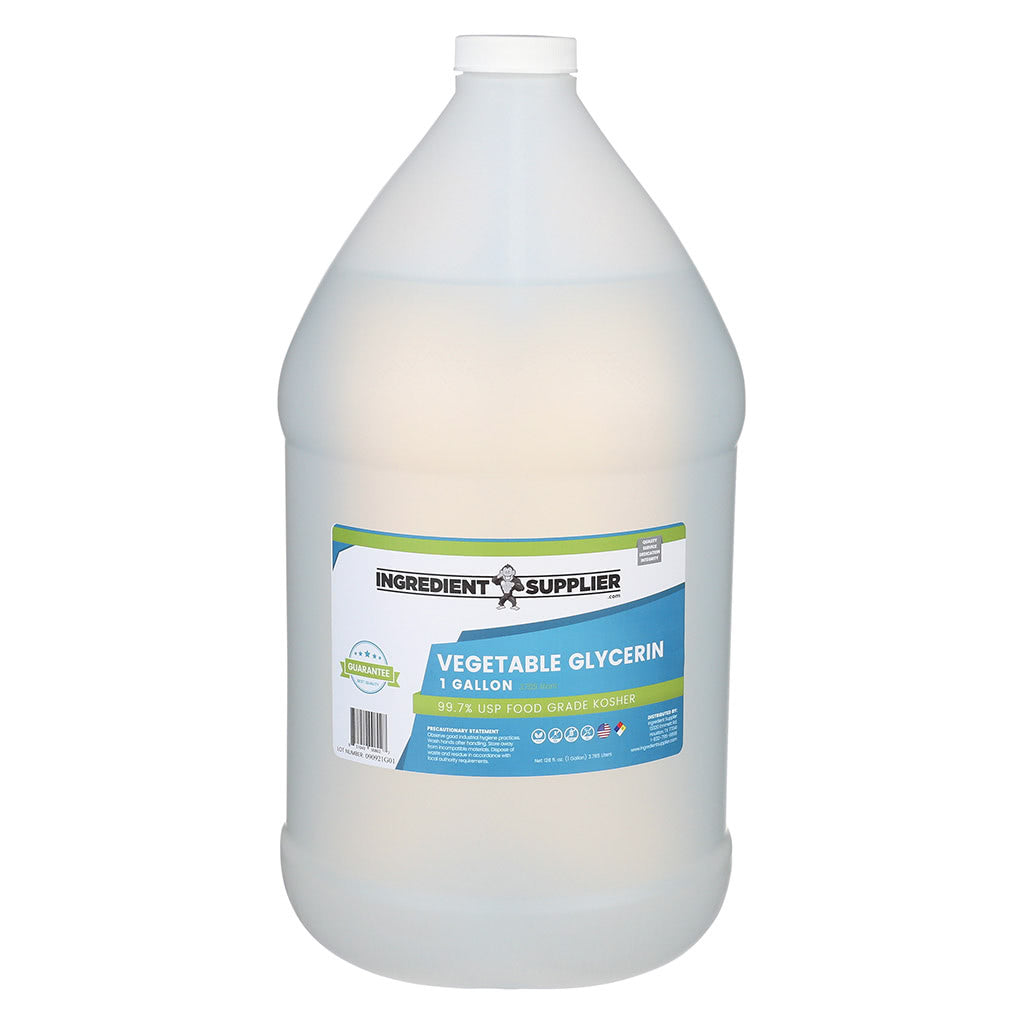
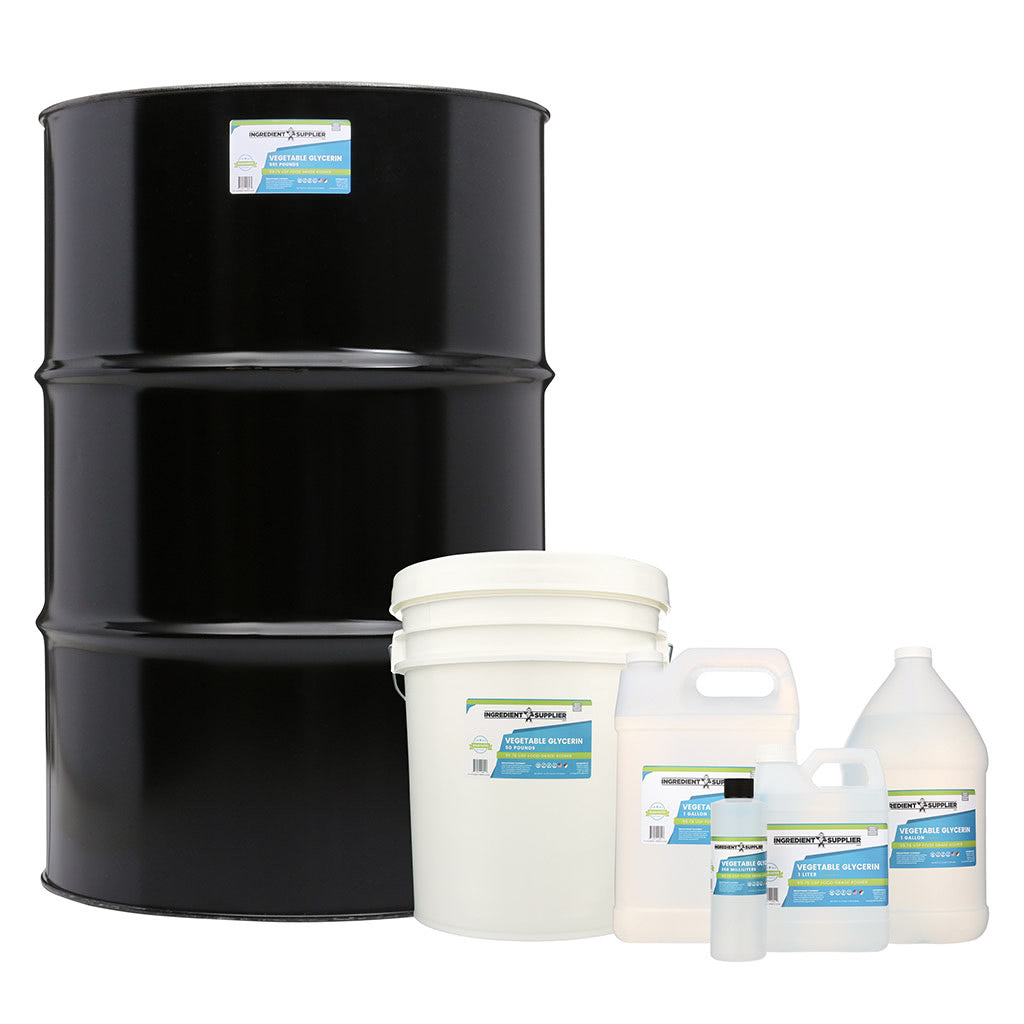
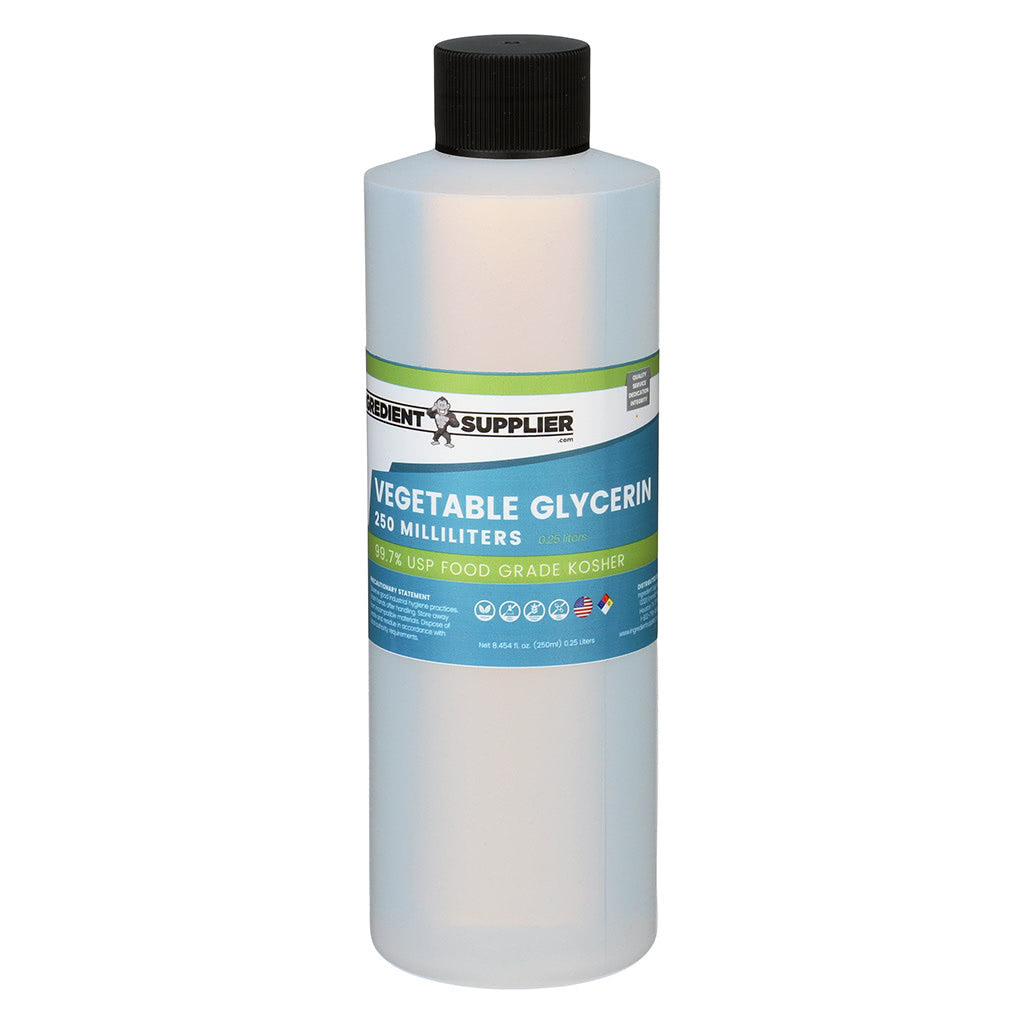
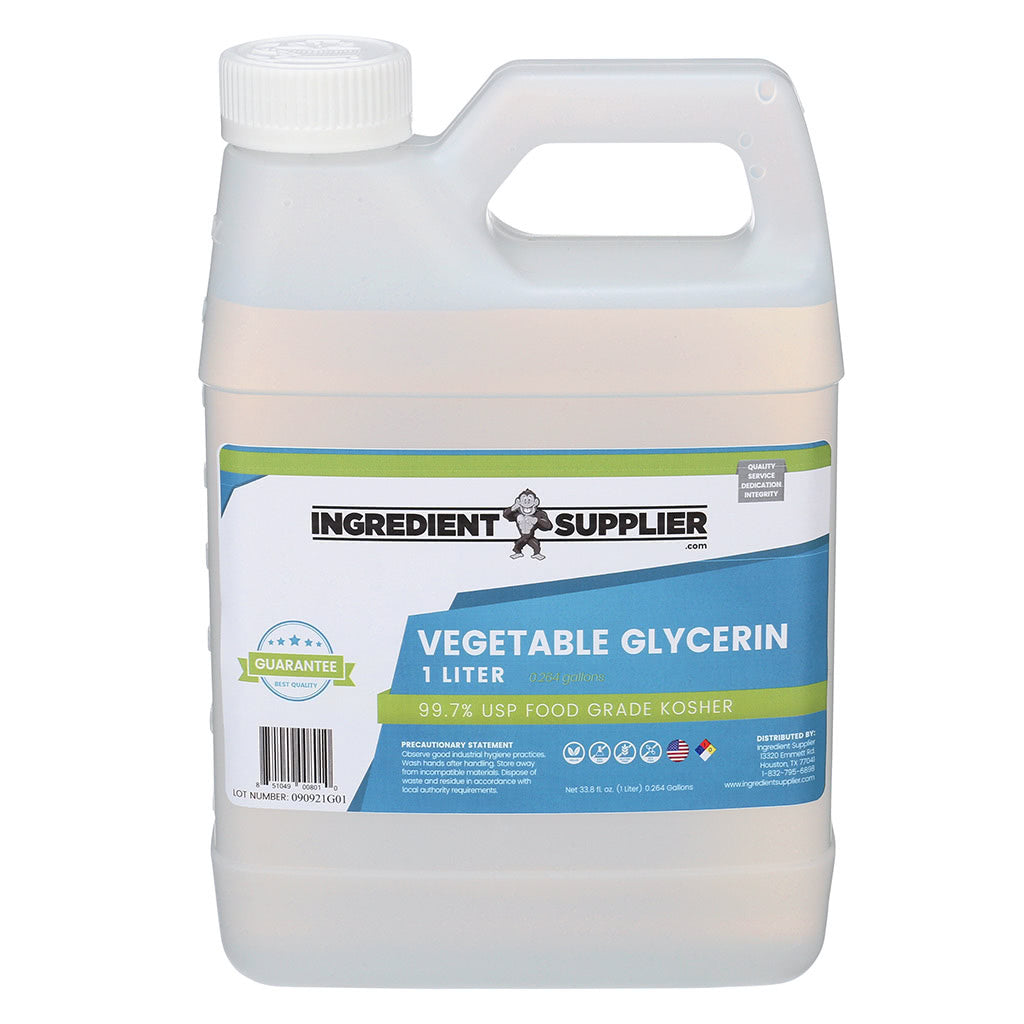
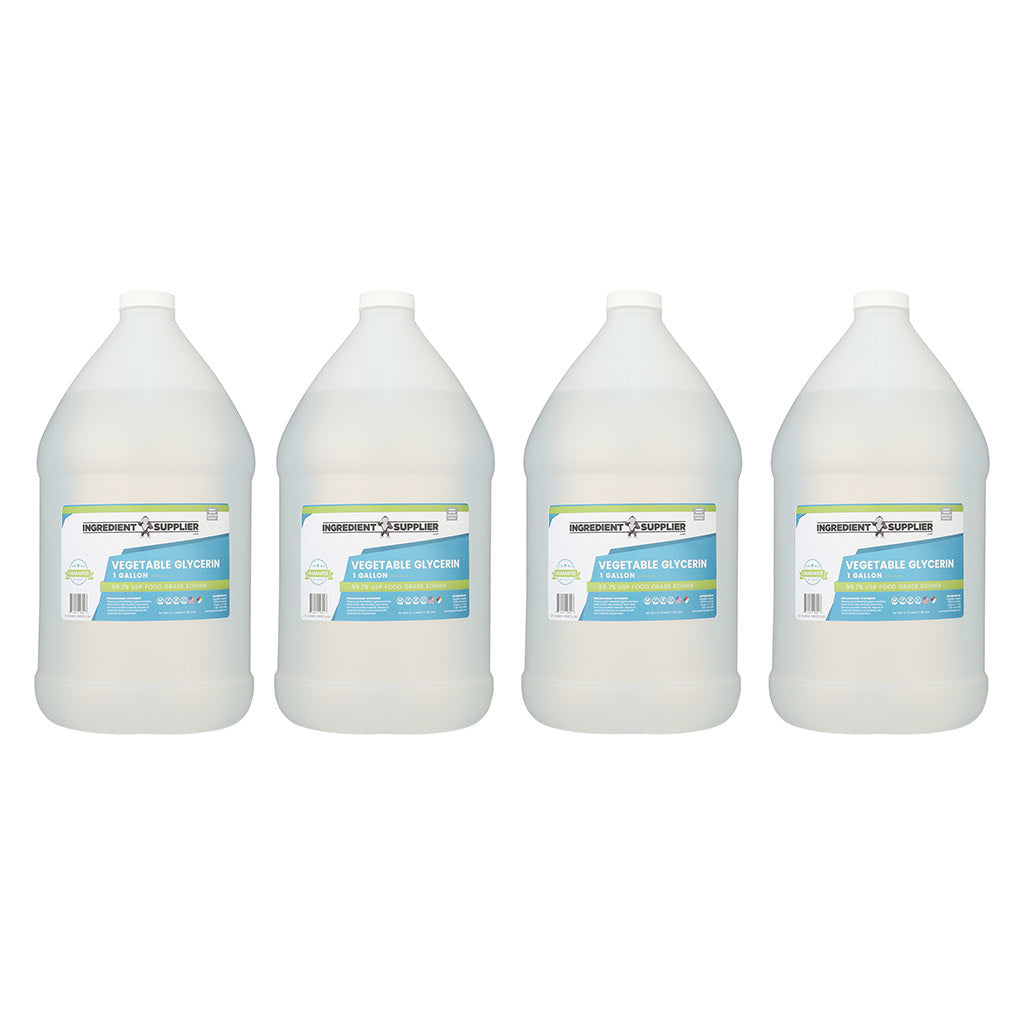
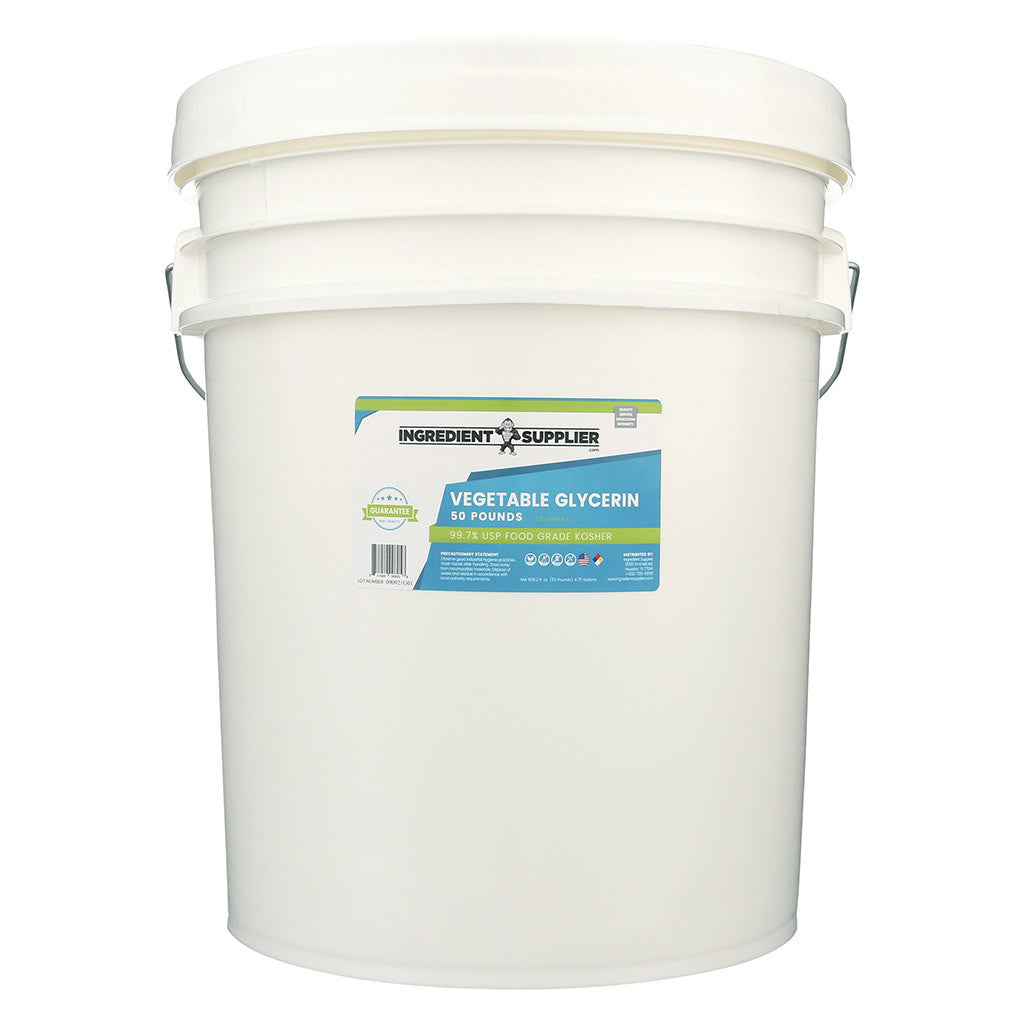
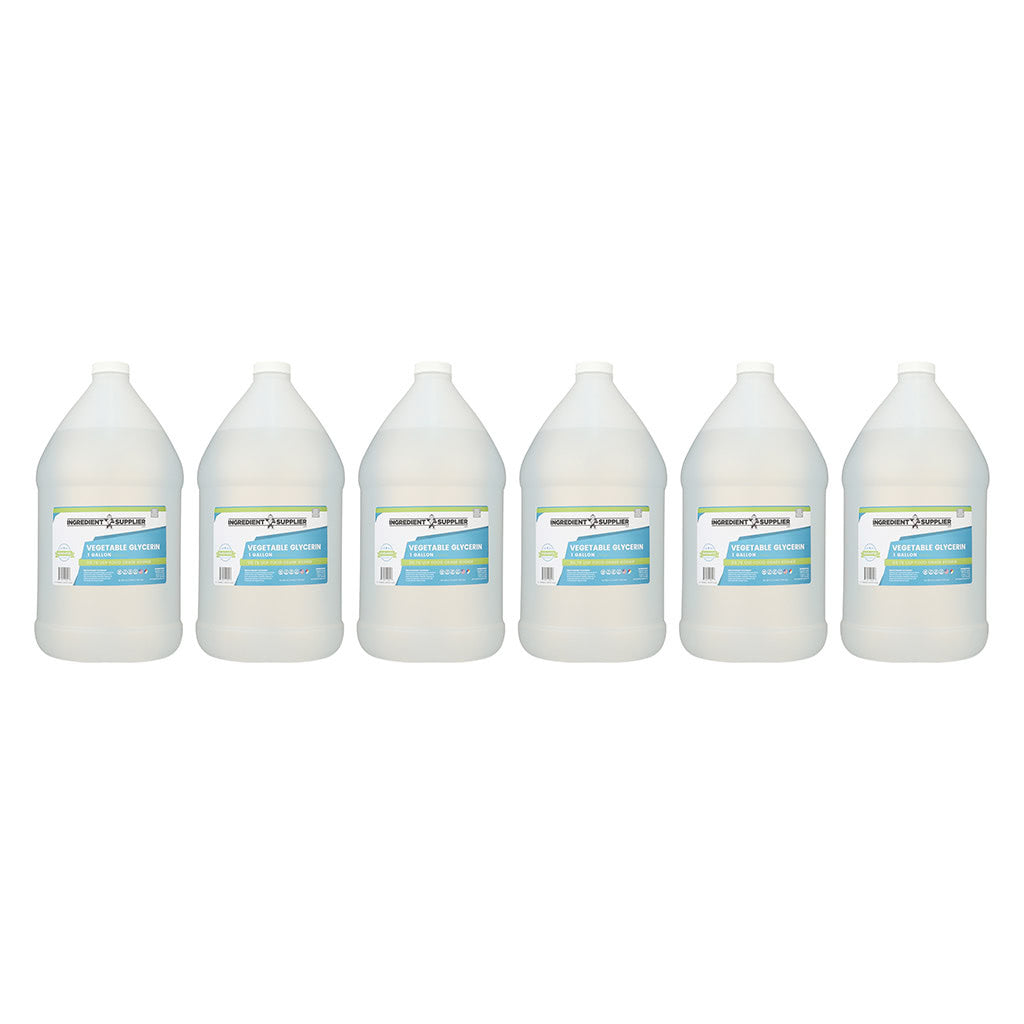
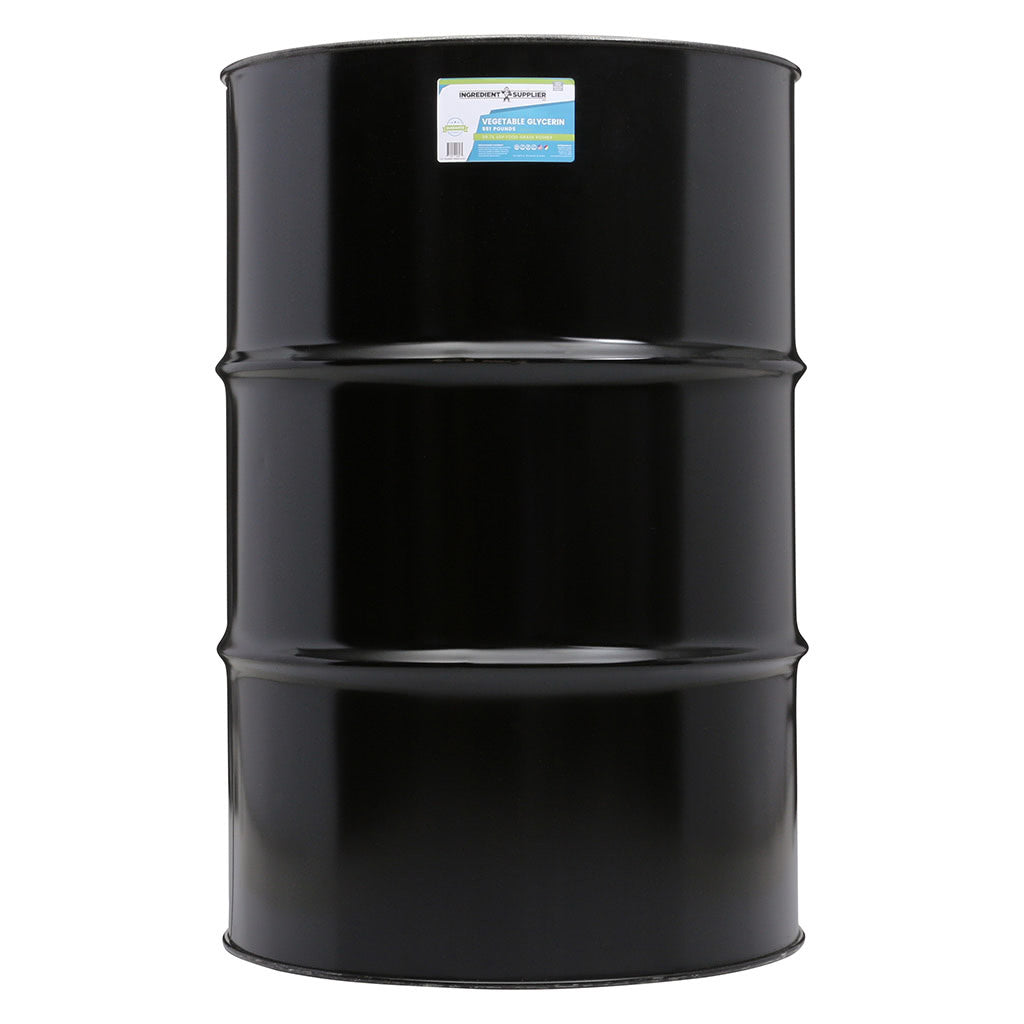
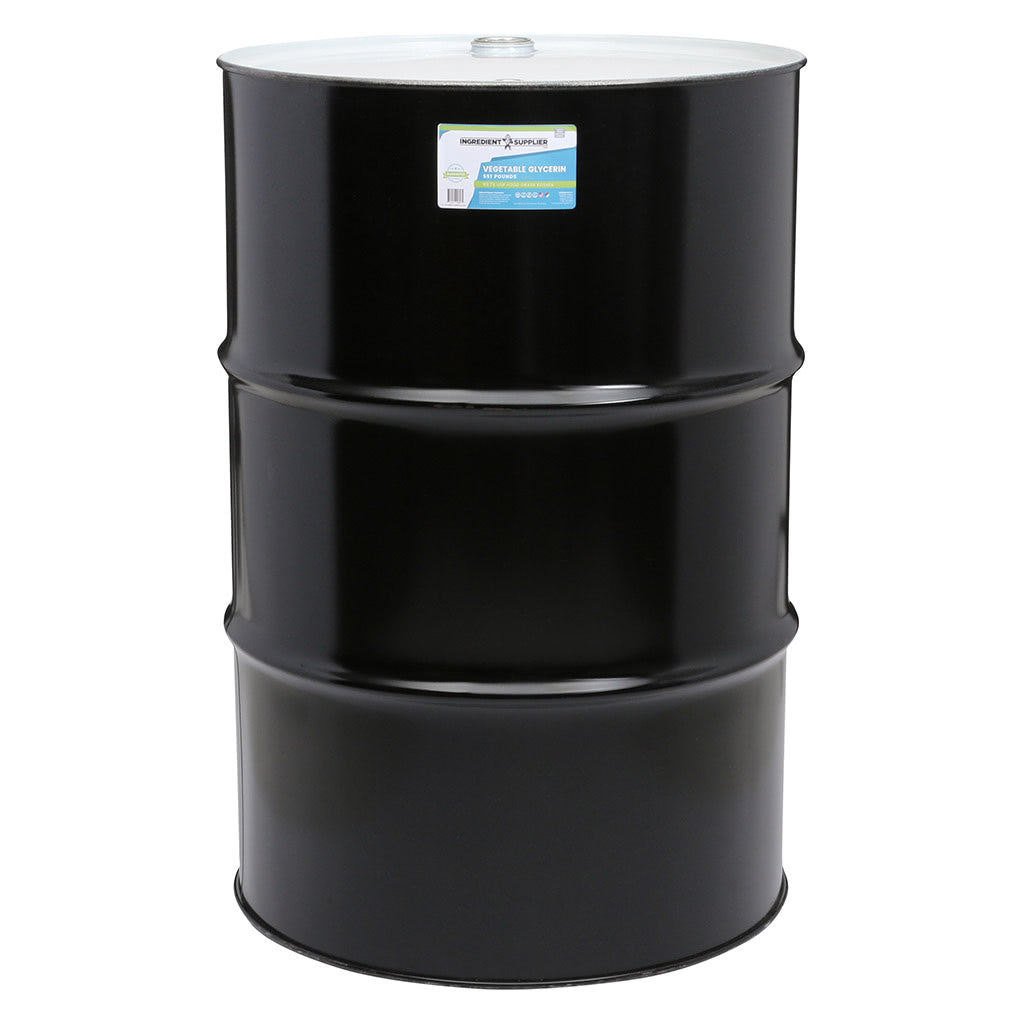
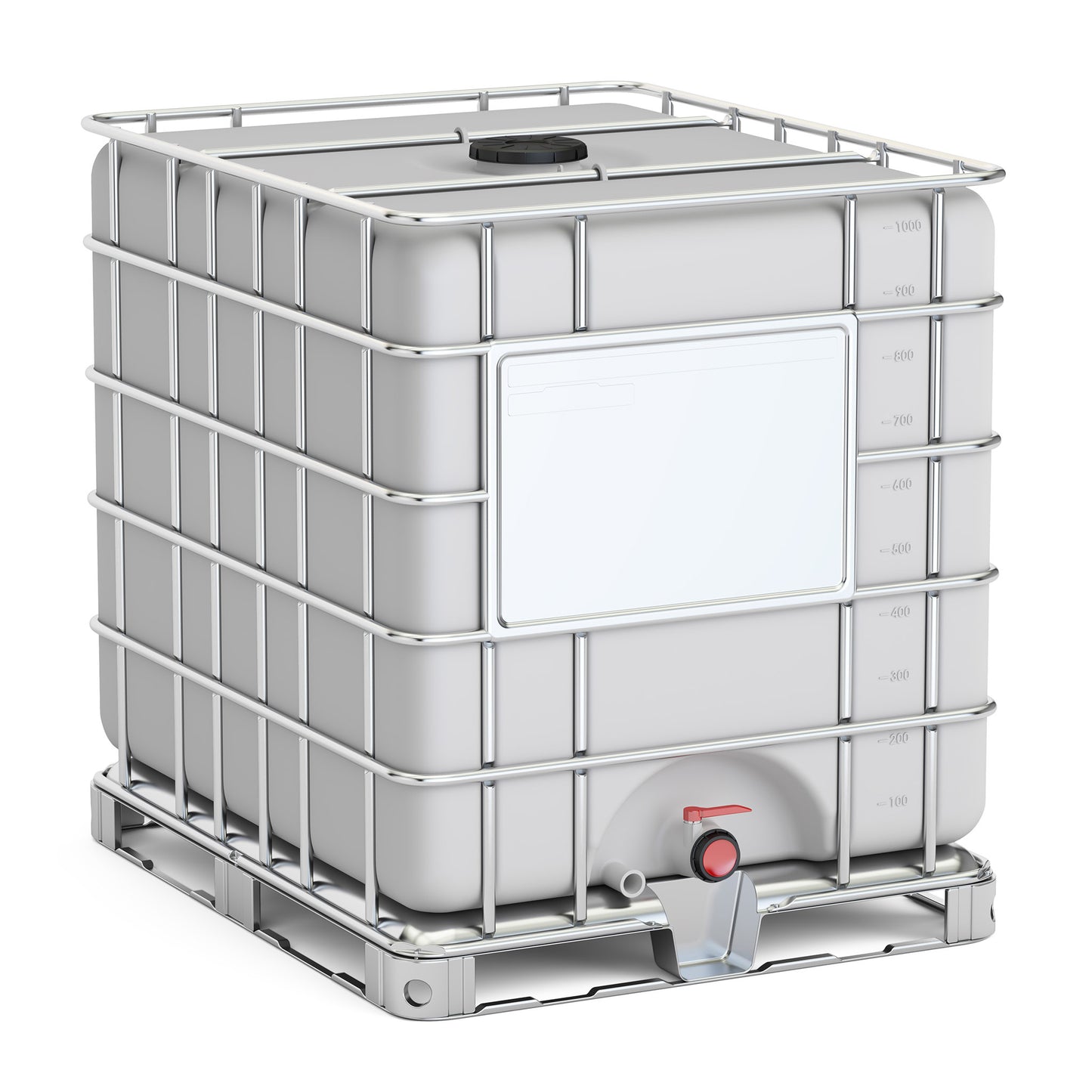

What is Vegetable Glycerin?
Vegetable Glycerin (VG) is a clear and odorless organic compound. It is made from soy, palm or coconut oil. While crude glycerin is a waste byproduct of biodiesel fuel, we sell only Kosher USP Vegetable Glycerin, made from premium oils. This is the highest quality glycerin and also safe for use in health, beaty, and pharmaceutical products.
How is Vegetable Glycerin Made?
All glycerin comes from the same chemical compound: C3H803. There is no difference in the many terms used for glycerin, only the process by which it is made. Our Vegetable Glycerin is made through a process called hydrolysis, which places the oil under pressure, heat and water. This breaks the glycerin free from the fatty acids, allowing them to join with the water. The process then continues with distillation, resulting in an even more pure final product. It is also resistant to freezing, making it versatile across temperatures, and is water and alcohol soluble.
Benefits & Uses of Vegetable Glycerin
Vegetable Glycerin has almost endless uses. Due to its mildly sweet taste and organic, pure properties, Vegetable Glycerin can be used in food applications and as a sugar substitute. Unlike sugar, however, glycerin does not contribute to tooth decay. It is also not a classic carbohydrate and can be used by those wanting to sweeten without adding carbs.
As a humectant, or moisture holder, Vegetable Glycerin is a great addition to many skincare and cosmetic products. Additionally, Vegetable Glycerin can be used in place of alcohol for herbal tonics and tincture, which can be beneficial for those unable to consume alcohol, as well as resulting in a better-tasting product.
Here are some more uses for VG:
-
Pharmaceutical/Medical
Because it is a humectant, Vegetable Glycerin is used in topical creams, which helps to soothe and heal trauma to the skin.
Vegetable Glycerin can also produce a laxative effect, making it an effective ingredient for suppositories.
Additionally, Vegetable Glycerin is commonly used in cough medicine, anesthetics, ear treatments, heart medication, and chemical research. -
Mechanical
Vegetable Glycerin can be used in antifreeze and anti-grease formulations, as well as functioning as an oil substitute. One of the most notable uses for Vegetable Glycerin in mechanical settings is as part of de-icer for airplanes. -
Cosmetic
As a humectant, Vegetable Glycerin provides moisture and helps retain moisture for lotions, hand creams, massage oils, liquid soaps, and various other soothing creams. It bears a pH similar to skin, and can be used even on sensitive skin and baby skin.
Vegetable Glycerin is used in toothpaste to prevent it from drying out or hardening in the tube. -
Food
Due to its sweet taste, Vegetable Glycerin is used as a natural sweetener, and being carb free, can be a great alternative for those on certain diets. As a humectant, it can function as a moisture retainer for baked goods. Vegetable Glycerin has also been used for flavoring and color dyes. Additionally, Vegetable Glycerin works to prevent crystallization in ice cream and icings. -
Animals
Similarly to how it is used for human food, Vegetable Glycerin is used in pet food, to help retain moisture. Glycerin is also used in animal medical treatments for dogs, cats, cattle, sheep, horses, and pigs. -
Household Cleaning Agents
Vegetable Glycerin can also be used in various household cleaning agents, such as soaps and synthetic detergents. It can also be used in wax emulsions and coatings and in skin protective contexts. -
Industrial
In industrial settings, Vegetable Glycerin is used in electrolytic fluids, pipe and valve repair, anti-corrosion fluids and treatments, fluid in thermometer gauges, VG is also used in asphalt, cement, rethreading, and explosives. -
Textile
In the textile industry, Vegetable Glycerin can be used for fabric dyes, as well as functioning as a lubricant for textile machines. -
Lawn & Garden
Vegetable Glycerin is a key ingredient in several lawn and garden products, including insecticides, insect repellant, compost, plant soil, seed coating, and flower preservation. -
Hobbies
Within the realm of hobbies, Vegetable Glycerin is used in leather and wood treatments, photography products, and keeping moisture in modeling clay.
Dosage, Safety, and Side Effects
Vegetable glycerin, and in particular Kosher USP Vegetable Glycerin is generally considered safe. The Federal Drug Administration (FDA) has classified Vegetable Glycerin as “Generally Recognized as Safe,” and the Cosmetic Ingredients Review (CIR) has classified Vegetable Glycerin as safe for use in cosmetics. Vegetable Glycerin is also considered an eco-friendly substance as it has no negative impact on the environment, including through the manufacturing process.
Consuming a large quantity of glycerin can lead to gastrointestinal distress, headaches, or allergic reaction, however those are rare occurrences. Vegetable Glycerin is not known to be a skin or eye irritant.

